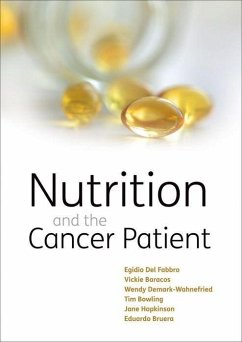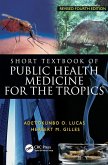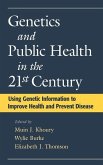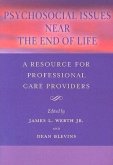- Gebundenes Buch
- Merkliste
- Auf die Merkliste
- Bewerten Bewerten
- Teilen
- Produkt teilen
- Produkterinnerung
- Produkterinnerung
This comprehensive reference book provides both background information and practical, clinical advice on all areas of nutrition for the cancer patient at all stages of their disease trajectory.
Andere Kunden interessierten sich auch für
![Knowledge to Action? Knowledge to Action?]() Sue DopsonKnowledge to Action?85,99 €
Sue DopsonKnowledge to Action?85,99 €![Short Textbook of Public Health Medicine for the Tropics, 4ed Short Textbook of Public Health Medicine for the Tropics, 4ed]() Adetokunbo LucasShort Textbook of Public Health Medicine for the Tropics, 4ed52,99 €
Adetokunbo LucasShort Textbook of Public Health Medicine for the Tropics, 4ed52,99 €![Genetics and Public Health in the 21st Century Genetics and Public Health in the 21st Century]() Muin J. Khoury / Wylie Burke / Elizabeth Thomson (eds.)Genetics and Public Health in the 21st Century146,99 €
Muin J. Khoury / Wylie Burke / Elizabeth Thomson (eds.)Genetics and Public Health in the 21st Century146,99 €![The Ethics of Shared Decision Making The Ethics of Shared Decision Making]() The Ethics of Shared Decision Making100,99 €
The Ethics of Shared Decision Making100,99 €![Social Movements and the Transformation of American Health Csocial Movements and the Transformation of American Health Care Are Social Movements and the Transformation of American Health Csocial Movements and the Transformation of American Health Care Are]() Jane Banaszak-HollSocial Movements and the Transformation of American Health Csocial Movements and the Transformation of American Health Care Are97,99 €
Jane Banaszak-HollSocial Movements and the Transformation of American Health Csocial Movements and the Transformation of American Health Care Are97,99 €![An English-Zulu Dictionary; With the Principles of Pronunciation and Classification Fully Explained An English-Zulu Dictionary; With the Principles of Pronunciation and Classification Fully Explained]() Charles RobertsAn English-Zulu Dictionary; With the Principles of Pronunciation and Classification Fully Explained34,99 €
Charles RobertsAn English-Zulu Dictionary; With the Principles of Pronunciation and Classification Fully Explained34,99 €![Psychosocial Issues Near the End of Life: A Resource for Professional Care Providers Psychosocial Issues Near the End of Life: A Resource for Professional Care Providers]() Psychosocial Issues Near the End of Life: A Resource for Professional Care Providers23,99 €
Psychosocial Issues Near the End of Life: A Resource for Professional Care Providers23,99 €-
-
-
This comprehensive reference book provides both background information and practical, clinical advice on all areas of nutrition for the cancer patient at all stages of their disease trajectory.
Hinweis: Dieser Artikel kann nur an eine deutsche Lieferadresse ausgeliefert werden.
Hinweis: Dieser Artikel kann nur an eine deutsche Lieferadresse ausgeliefert werden.
Produktdetails
- Produktdetails
- Verlag: Oxford University Press (UK)
- Seitenzahl: 534
- Erscheinungstermin: 3. September 2010
- Englisch
- Abmessung: 249mm x 178mm x 35mm
- Gewicht: 1026g
- ISBN-13: 9780199550197
- ISBN-10: 0199550190
- Artikelnr.: 47870687
- Herstellerkennzeichnung
- Libri GmbH
- Europaallee 1
- 36244 Bad Hersfeld
- gpsr@libri.de
- Verlag: Oxford University Press (UK)
- Seitenzahl: 534
- Erscheinungstermin: 3. September 2010
- Englisch
- Abmessung: 249mm x 178mm x 35mm
- Gewicht: 1026g
- ISBN-13: 9780199550197
- ISBN-10: 0199550190
- Artikelnr.: 47870687
- Herstellerkennzeichnung
- Libri GmbH
- Europaallee 1
- 36244 Bad Hersfeld
- gpsr@libri.de
After medical school at the University of the Witwatersrand, South Africa, Egidio Del Fabbro completed his residency in Internal Medicine at Barnes Jewish Hospital, St. Louis in 1998. Following 5 years of internal medicine practice he completed a palliative care fellowship at MD Anderson Cancer Center. In his current position as Assistant Professor in the Palliative Care and Rehabilitation department and co-director of the Cachexia clinic at MD Anderson the goal is to increase the awareness of conditions affecting the quality of life of cancer patients such as poor appetite, fatigue and testosterone deficiency. He is the Principal Investigator of two prospective clinical intervention trials including melatonin for appetite in patients with cancer and multimodality therapy for cachexia. He is funded by the American Cancer Society to explore the effect of testosterone replacement in male patients with advanced cancer and serves on scientific committees at national and international conferences. Eduardo Bruera, MD, is Chair of the Department of Palliative Care and Rehabilitation Medicine and holds the F. T. McGraw Chair in the Treatment of Cancer at The University of Texas M. D. Anderson Cancer Center in Houston, Texas. Dr. Bruera is Vice President of the International Association of Hospice and Palliative Care. He is a member of the editorial board of several pain, palliative care, and cancer journals. He has received a number of national and international awards for his clinical and research commitment to the management of pain and other symptoms. Dr. Bruera's research has focused on clinical trials of pain and other symptoms, and health services research regarding supportive and palliative care. Dr Demark-Wahnefried is a nutrition scientist whose research spans basic science studies focused on determining the role of food-related components on cancer progression, to clinical research that involves nutrition-related concerns of cancer patients, as well as determining effective lifestyle interventions that improve the overall health of cancer survivors and their families. Her laboratory has conducted some of the largest studies exploring metabolic and body composition changes in response to cancer treatment. In 2003 she was named Komen Professor of Survivorship for her work in energy balance and breast cancer. An area of research in which she has particular expertise is in the delivery of home-based lifestyle interventions, where she has led and continues to lead several NIH-funded trials to improve the diet and exercise behaviors of cancer survivors. She also has actively contributed to national guidelines for cancer survivors (e.g., Institute of Medicine and the American Cancer Society). Dr Bowling qualified at St Bartholomew's Medical School, University of London, in 1986. After a variety of junior posts, he was appointed as a research fellow with Professor David Silk at the Central Middlesex Hospital. For his MD thesis he looked at the in vivo human colonic responses to intragastric and intraduodenal enteral feeding. For this work he was awarded the Sir David Cuthbertson Research Medal. In 1996 he was appointed as a Consultant in Gastroenterology at the University Hospital of North Staffordshire. He started a multidisciplinary nutrition support team, which introduced various innovative practices, that have since been copied by many other UK hospital teams. In 2003 he took up his current post in Nottingham as a Gastroenterologist and running a regional intestinal failure unit. He is clinical lead for nutrition at the Nottingham University Hospitals and leads the nutrition support team. Jane Hopkinson is a Macmillan Post Doctoral Research Fellow, who specialises in the study of supportive and palliative care for people with cancer. She is a nurse who worked clinically in the fields of cancer and palliative care prior to becoming a full-time academic seven years ago. Since 2002, her research has been investigating the problems of living with weight loss and eating difficulties for people with advanced cancer and their families. The purpose of this programme of research is to develop innovative ways of supporting people living with cancer cachexia syndrome. She regularly speaks about her work at both national and international meetings, in addition to publishing on the subject. Dr Vickie E. Baracos' research program on muscle and protein metabolism spans two decades and is related to different physiologic and pathologic states where muscle protein growth or wasting occur, including cancer, chemotherapy, sepsis, injury, diabetes, diet, environmental stress and lactation.
* 1 - Basic principles
* 1: Vickie E. Baracos: Definitions and epidemiology
* 2: Vickie E. Baracos and Henrique A. Parsons: Metabolism and
physiology
* 3: Vickie E. Baracos, CMM Prado, S Antoun, and I Gioulbasanis: The
assessment of nutritional status
* 2 - The cachexia/anorexia syndrome
* 4: Egidio Del Fabbro and Vickie E. Baracos: The epidemiology of body
weight and body weight loss and its relation to cancer
* 5: Vickie E. Baracos and Henrique A. Parsons: The mechanisms of
primary cachexia
* 3 - The treatment of primary cachexia
* 6: Henrique A. Parsons and Eduardo Bruera: Challenges and
opportunities in conducting clinical research in cancer cachexia
* 7: Florian Strasser: Appetite stimulants
* 8: Jose Garcia: Anabolic hormones
* 9: Egidio del Fabbro: Immune modulators
* 10: Nada Fadul: Autonomic system modulators
* 11: Eduardo Bruera and Egidio del Fabbro: Multimodality therapy
* 4 - The treatment of secondary cachexia
* 12: Florian Strasser: Classification of cancer cachexia and secondary
nutrition impact symptoms
* 13: Carla Ida Ripamonti, Nicla La Verde, Gabriella Farina, and Marina
Chiara Garassino: Oral complications
* 14: Mellar P. Davis: Nausea and vomiting in advanced cancer
* 15: Mellar P. Davis: Early satiety
* 16: David Blum: Disordered bowel function
* 17: Elizabeth Kvale, Casey Balentine Azuero, and Eric Walker:
Depression and fatigue
* 5 - Nutritional counselling
* 18: Laura Elliot and Barbara Parry: Counselling by a dietitian
* 19: Colette Hawkins, Inga Andrew, Tessa Aston, Trevelyan Beyer,
Jacqueline Cairns, Bob Hansford, Jane Hopkinson, Reverend Caroline
Worsfold: The multi-disciplinary approach to nutritional problems in
patients with cancer
* 6 - Artificial nutritional support
* 20: Tim Bowling: Nutritional support: an overview
* 21: Jeremy Woodward: Oral and enteral nutrition
* 22: Pradeep F. Thomas and Dileep N Lobo: Nutrition in advanced
malignancy: parenteral nutrition, palliative surgery and
gastrointestinal stents
* 7 - Ethics, culture and spirituality
* 23: Paulina Taboada, Alejandra Palma, and Beatriz Shand: Ethics and
medically assisted nutrition and hydration in cancer
* 24: Sarah Toule: Cultural and religious factors
* 8 - Nutrition and Complementary and Alternative Medicine (CAM) in
cancer
* 25: Eran Ben-Arye, Dena Norton, Moshe Frenkel, and Nicola Hembry:
Nutrition and Complementary and Alternative Medicine (CAM) in cancer
care
* 9 - Exercise
* 26: Lee W. Jones: Exercise therapy for persons diagnosed with cancer
* 10 - Clinical groups
* 27: Wendy Demark-Wahnefried: The cancer survivor
* 28: R.D. Johnston, R.A. Barrett, and T.E. Bowling: Nutritional
management of patients receiving primary cancer therapy
* 29: Shalini Dalal: Nutritional management of patients with recurrent,
advanced or metastatic cancer
* 30: Egidio del Fabbro: Patients at the end of life
* 11 - Special opulations
* 31: Sian Kirkham and Martin Hewitt: Paediatric patients
* 32: Jane Hopkinson and Christopher Bailey: Nutritional care of older
people with cancer
* 33: Marvin Omar Delgado Guay: Nutrition and comorbidities in patients
with cancer
* 34: Richard Harding and Liz Gwyther: Patients in the developing world
* 35: Susan E. McClement: The experience of involuntary weight loss and
altered body image in patients with cancer anorexia-cachexia syndrome
(CACS): Patient and family perspectives
* 1: Vickie E. Baracos: Definitions and epidemiology
* 2: Vickie E. Baracos and Henrique A. Parsons: Metabolism and
physiology
* 3: Vickie E. Baracos, CMM Prado, S Antoun, and I Gioulbasanis: The
assessment of nutritional status
* 2 - The cachexia/anorexia syndrome
* 4: Egidio Del Fabbro and Vickie E. Baracos: The epidemiology of body
weight and body weight loss and its relation to cancer
* 5: Vickie E. Baracos and Henrique A. Parsons: The mechanisms of
primary cachexia
* 3 - The treatment of primary cachexia
* 6: Henrique A. Parsons and Eduardo Bruera: Challenges and
opportunities in conducting clinical research in cancer cachexia
* 7: Florian Strasser: Appetite stimulants
* 8: Jose Garcia: Anabolic hormones
* 9: Egidio del Fabbro: Immune modulators
* 10: Nada Fadul: Autonomic system modulators
* 11: Eduardo Bruera and Egidio del Fabbro: Multimodality therapy
* 4 - The treatment of secondary cachexia
* 12: Florian Strasser: Classification of cancer cachexia and secondary
nutrition impact symptoms
* 13: Carla Ida Ripamonti, Nicla La Verde, Gabriella Farina, and Marina
Chiara Garassino: Oral complications
* 14: Mellar P. Davis: Nausea and vomiting in advanced cancer
* 15: Mellar P. Davis: Early satiety
* 16: David Blum: Disordered bowel function
* 17: Elizabeth Kvale, Casey Balentine Azuero, and Eric Walker:
Depression and fatigue
* 5 - Nutritional counselling
* 18: Laura Elliot and Barbara Parry: Counselling by a dietitian
* 19: Colette Hawkins, Inga Andrew, Tessa Aston, Trevelyan Beyer,
Jacqueline Cairns, Bob Hansford, Jane Hopkinson, Reverend Caroline
Worsfold: The multi-disciplinary approach to nutritional problems in
patients with cancer
* 6 - Artificial nutritional support
* 20: Tim Bowling: Nutritional support: an overview
* 21: Jeremy Woodward: Oral and enteral nutrition
* 22: Pradeep F. Thomas and Dileep N Lobo: Nutrition in advanced
malignancy: parenteral nutrition, palliative surgery and
gastrointestinal stents
* 7 - Ethics, culture and spirituality
* 23: Paulina Taboada, Alejandra Palma, and Beatriz Shand: Ethics and
medically assisted nutrition and hydration in cancer
* 24: Sarah Toule: Cultural and religious factors
* 8 - Nutrition and Complementary and Alternative Medicine (CAM) in
cancer
* 25: Eran Ben-Arye, Dena Norton, Moshe Frenkel, and Nicola Hembry:
Nutrition and Complementary and Alternative Medicine (CAM) in cancer
care
* 9 - Exercise
* 26: Lee W. Jones: Exercise therapy for persons diagnosed with cancer
* 10 - Clinical groups
* 27: Wendy Demark-Wahnefried: The cancer survivor
* 28: R.D. Johnston, R.A. Barrett, and T.E. Bowling: Nutritional
management of patients receiving primary cancer therapy
* 29: Shalini Dalal: Nutritional management of patients with recurrent,
advanced or metastatic cancer
* 30: Egidio del Fabbro: Patients at the end of life
* 11 - Special opulations
* 31: Sian Kirkham and Martin Hewitt: Paediatric patients
* 32: Jane Hopkinson and Christopher Bailey: Nutritional care of older
people with cancer
* 33: Marvin Omar Delgado Guay: Nutrition and comorbidities in patients
with cancer
* 34: Richard Harding and Liz Gwyther: Patients in the developing world
* 35: Susan E. McClement: The experience of involuntary weight loss and
altered body image in patients with cancer anorexia-cachexia syndrome
(CACS): Patient and family perspectives
* 1 - Basic principles
* 1: Vickie E. Baracos: Definitions and epidemiology
* 2: Vickie E. Baracos and Henrique A. Parsons: Metabolism and
physiology
* 3: Vickie E. Baracos, CMM Prado, S Antoun, and I Gioulbasanis: The
assessment of nutritional status
* 2 - The cachexia/anorexia syndrome
* 4: Egidio Del Fabbro and Vickie E. Baracos: The epidemiology of body
weight and body weight loss and its relation to cancer
* 5: Vickie E. Baracos and Henrique A. Parsons: The mechanisms of
primary cachexia
* 3 - The treatment of primary cachexia
* 6: Henrique A. Parsons and Eduardo Bruera: Challenges and
opportunities in conducting clinical research in cancer cachexia
* 7: Florian Strasser: Appetite stimulants
* 8: Jose Garcia: Anabolic hormones
* 9: Egidio del Fabbro: Immune modulators
* 10: Nada Fadul: Autonomic system modulators
* 11: Eduardo Bruera and Egidio del Fabbro: Multimodality therapy
* 4 - The treatment of secondary cachexia
* 12: Florian Strasser: Classification of cancer cachexia and secondary
nutrition impact symptoms
* 13: Carla Ida Ripamonti, Nicla La Verde, Gabriella Farina, and Marina
Chiara Garassino: Oral complications
* 14: Mellar P. Davis: Nausea and vomiting in advanced cancer
* 15: Mellar P. Davis: Early satiety
* 16: David Blum: Disordered bowel function
* 17: Elizabeth Kvale, Casey Balentine Azuero, and Eric Walker:
Depression and fatigue
* 5 - Nutritional counselling
* 18: Laura Elliot and Barbara Parry: Counselling by a dietitian
* 19: Colette Hawkins, Inga Andrew, Tessa Aston, Trevelyan Beyer,
Jacqueline Cairns, Bob Hansford, Jane Hopkinson, Reverend Caroline
Worsfold: The multi-disciplinary approach to nutritional problems in
patients with cancer
* 6 - Artificial nutritional support
* 20: Tim Bowling: Nutritional support: an overview
* 21: Jeremy Woodward: Oral and enteral nutrition
* 22: Pradeep F. Thomas and Dileep N Lobo: Nutrition in advanced
malignancy: parenteral nutrition, palliative surgery and
gastrointestinal stents
* 7 - Ethics, culture and spirituality
* 23: Paulina Taboada, Alejandra Palma, and Beatriz Shand: Ethics and
medically assisted nutrition and hydration in cancer
* 24: Sarah Toule: Cultural and religious factors
* 8 - Nutrition and Complementary and Alternative Medicine (CAM) in
cancer
* 25: Eran Ben-Arye, Dena Norton, Moshe Frenkel, and Nicola Hembry:
Nutrition and Complementary and Alternative Medicine (CAM) in cancer
care
* 9 - Exercise
* 26: Lee W. Jones: Exercise therapy for persons diagnosed with cancer
* 10 - Clinical groups
* 27: Wendy Demark-Wahnefried: The cancer survivor
* 28: R.D. Johnston, R.A. Barrett, and T.E. Bowling: Nutritional
management of patients receiving primary cancer therapy
* 29: Shalini Dalal: Nutritional management of patients with recurrent,
advanced or metastatic cancer
* 30: Egidio del Fabbro: Patients at the end of life
* 11 - Special opulations
* 31: Sian Kirkham and Martin Hewitt: Paediatric patients
* 32: Jane Hopkinson and Christopher Bailey: Nutritional care of older
people with cancer
* 33: Marvin Omar Delgado Guay: Nutrition and comorbidities in patients
with cancer
* 34: Richard Harding and Liz Gwyther: Patients in the developing world
* 35: Susan E. McClement: The experience of involuntary weight loss and
altered body image in patients with cancer anorexia-cachexia syndrome
(CACS): Patient and family perspectives
* 1: Vickie E. Baracos: Definitions and epidemiology
* 2: Vickie E. Baracos and Henrique A. Parsons: Metabolism and
physiology
* 3: Vickie E. Baracos, CMM Prado, S Antoun, and I Gioulbasanis: The
assessment of nutritional status
* 2 - The cachexia/anorexia syndrome
* 4: Egidio Del Fabbro and Vickie E. Baracos: The epidemiology of body
weight and body weight loss and its relation to cancer
* 5: Vickie E. Baracos and Henrique A. Parsons: The mechanisms of
primary cachexia
* 3 - The treatment of primary cachexia
* 6: Henrique A. Parsons and Eduardo Bruera: Challenges and
opportunities in conducting clinical research in cancer cachexia
* 7: Florian Strasser: Appetite stimulants
* 8: Jose Garcia: Anabolic hormones
* 9: Egidio del Fabbro: Immune modulators
* 10: Nada Fadul: Autonomic system modulators
* 11: Eduardo Bruera and Egidio del Fabbro: Multimodality therapy
* 4 - The treatment of secondary cachexia
* 12: Florian Strasser: Classification of cancer cachexia and secondary
nutrition impact symptoms
* 13: Carla Ida Ripamonti, Nicla La Verde, Gabriella Farina, and Marina
Chiara Garassino: Oral complications
* 14: Mellar P. Davis: Nausea and vomiting in advanced cancer
* 15: Mellar P. Davis: Early satiety
* 16: David Blum: Disordered bowel function
* 17: Elizabeth Kvale, Casey Balentine Azuero, and Eric Walker:
Depression and fatigue
* 5 - Nutritional counselling
* 18: Laura Elliot and Barbara Parry: Counselling by a dietitian
* 19: Colette Hawkins, Inga Andrew, Tessa Aston, Trevelyan Beyer,
Jacqueline Cairns, Bob Hansford, Jane Hopkinson, Reverend Caroline
Worsfold: The multi-disciplinary approach to nutritional problems in
patients with cancer
* 6 - Artificial nutritional support
* 20: Tim Bowling: Nutritional support: an overview
* 21: Jeremy Woodward: Oral and enteral nutrition
* 22: Pradeep F. Thomas and Dileep N Lobo: Nutrition in advanced
malignancy: parenteral nutrition, palliative surgery and
gastrointestinal stents
* 7 - Ethics, culture and spirituality
* 23: Paulina Taboada, Alejandra Palma, and Beatriz Shand: Ethics and
medically assisted nutrition and hydration in cancer
* 24: Sarah Toule: Cultural and religious factors
* 8 - Nutrition and Complementary and Alternative Medicine (CAM) in
cancer
* 25: Eran Ben-Arye, Dena Norton, Moshe Frenkel, and Nicola Hembry:
Nutrition and Complementary and Alternative Medicine (CAM) in cancer
care
* 9 - Exercise
* 26: Lee W. Jones: Exercise therapy for persons diagnosed with cancer
* 10 - Clinical groups
* 27: Wendy Demark-Wahnefried: The cancer survivor
* 28: R.D. Johnston, R.A. Barrett, and T.E. Bowling: Nutritional
management of patients receiving primary cancer therapy
* 29: Shalini Dalal: Nutritional management of patients with recurrent,
advanced or metastatic cancer
* 30: Egidio del Fabbro: Patients at the end of life
* 11 - Special opulations
* 31: Sian Kirkham and Martin Hewitt: Paediatric patients
* 32: Jane Hopkinson and Christopher Bailey: Nutritional care of older
people with cancer
* 33: Marvin Omar Delgado Guay: Nutrition and comorbidities in patients
with cancer
* 34: Richard Harding and Liz Gwyther: Patients in the developing world
* 35: Susan E. McClement: The experience of involuntary weight loss and
altered body image in patients with cancer anorexia-cachexia syndrome
(CACS): Patient and family perspectives








